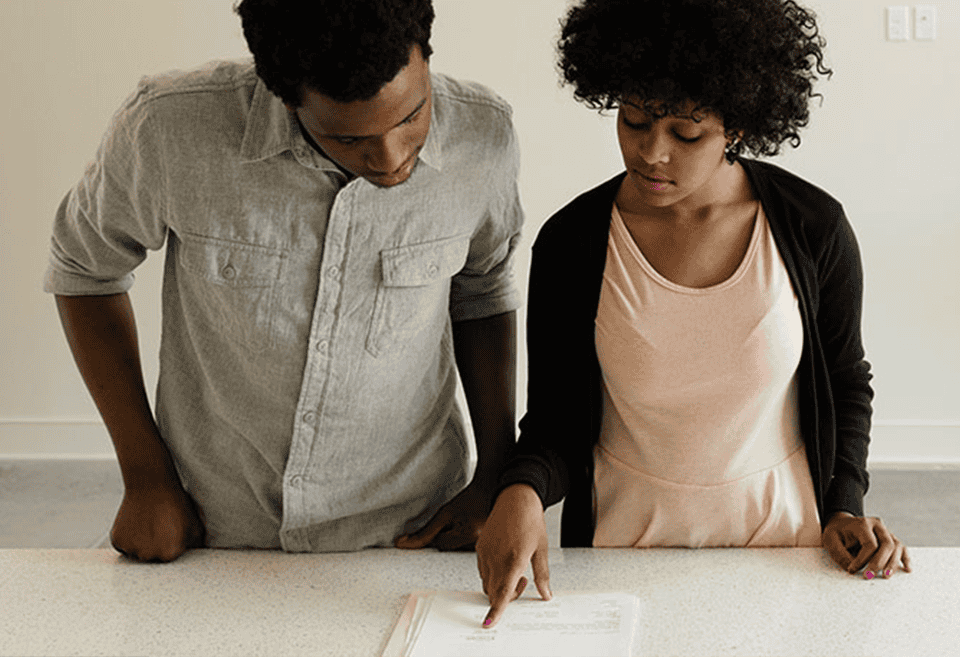Ready to Buy a Home? Think Beyond the Down Payment.

Buying your first home is an exciting milestone, signifying the achievement of an often hard-earned goal. Your home is an investment in your future and it can provide a stable environment to raise your family, nurture friendships, advance your career, and establish yourself in a community. Deciding to buy your first home comes with excitement, promise, and many potential benefits—as long as you’re financially prepared and ready to take on the long-term responsibility.
Beyond the desire to buy, how do you know if you’re ready to take this big step? Here are six key elements to consider before you contact a real estate agent or start your search.
1. What’s Driving Your Desire to Buy?
You’re on the right track if your reasons to buy include wanting to put down roots in a place connected to a stable career or close family and friends, growing your family, becoming part of a community, or having the freedom to personalize and take full ownership of your own space.
Other reasons to buy a home are not as sound. These include wanting to keep up with friends or your own imagined timeline, listening to others who are telling you it’s the right time, or assuming a mortgage will be cheaper than rent (it may not be, and there are other expenses to consider).
After you’ve considered all the financial and personal responsibilities that come along with homeownership, make sure your reasons for wanting to buy a house are sensible. That way you can feel secure and satisfied with your decision.
2. Can You Actually Afford It?
When you first start thinking about buying a home, you’ll probably focus on if you can realistically afford the down payment and a monthly mortgage. However, there’s a lot to consider beyond those numbers, including:
- Your current credit score and debt burden. If you are already carrying a lot of debt from credit cards, student loans, car payments, etc., is it really a good idea to tack on more in the form of a mortgage? Carrying a lot of debt often indicates you may not be able to afford the life you’re already living, let alone an additional layer of responsibility. Your credit score, which reflects your current borrowing and payment history, will also help determine what types of loans and mortgages you may qualify for, how much you’ll be required to pay for a down payment and private mortgage insurance (PMI), and your interest rate.
- Your income and existing debt. Experts typically advise that your monthly housing payment—your mortgage principal and interest plus taxes and insurance—should not exceed 28% of your pre-tax monthly income. Others expand on that advice, saying that no more than 36% of your monthly income should be spent paying off debt, which would include that mortgage payment plus any credit card debt, student loans, or car loans.
- Your savings for a down payment. When you apply for a mortgage, unless you are using a VA or USDA loan, you are responsible for making a down payment. While you may be able to put as little as 3% or 3.5% down with certain lenders or FHA loans, putting at least 20% down will increase your chances of getting a desirable rate and will allow you to avoid mortgage insurance.
- The unavoidable extras. When you buy a home, you’ll also be responsible for closing costs, insurance, property taxes, homeowners association fees, and whatever renovations or repairs you need to get the house move-in ready (unless the seller has agreed to repair or replace something as part of your contract). That means factoring in several thousand more dollars to your home-buying bill. Plus, you’ll need to plan on paying for water, sewer, garbage collection, and any other utilities or services that might have been rolled into your rent at your current location.
3. Are You Comfortable With the Financing?
If you plan to stay in your house long-term, a fixed-rate mortgage is often a better choice than an adjustable-rate mortgage (ARM), even though an ARM may cost less upfront. With an ARM, changing interest rates and payments may create a greater burden on your budget in the future. There are 10-, 15-, 20-, and 30-year fixed-rate mortgages available, and the longer the term you choose, the lower your monthly payments will be. However, a longer term also means more interest over the life of the loan, so you’ll pay more in the end. Make sure you can manage these fixed monthly costs comfortably before you buy.
4. Do You Have Time, and a Trusted Partner, for Searching?
Most people do not find their dream home the first time they set out on a search. Even when you’re financially prepared to take the next step, it can take months of online searches, open houses, and scheduled walk-throughs to find a house you’re happy with in your desired location and price range. So, if you’re already overly stressed and dealing with a packed schedule that doesn’t allow for a significant time commitment to search, you might want to put it off for now.
That being said, plenty of people with busy careers and personal lives find they can squeeze in a few house tours each weekend, which may be enough. A reliable real estate agent who knows the area and really understands your needs is key to making any home search go smoothly.
5. Is Your Potential Home Close to Being Move-in Ready?
Even after homebuyers sign the paperwork, they often have a lot of work to do before the house meets their specific living standards. A good cleaning, a fresh coat of paint, shampooing or replacing carpets, and even a few appliance upgrades are not uncommon items on the average homebuyer’s to-do list. But some houses have much bigger problems, that could end up costing you a lot of money and time.
Luckily, paying for a home inspection from a reputable individual or company can help uncover many of these “surprises” and help you avoid unexpected costs. Ask your real estate agent if you can include a home inspection contingency in your contract. With such a contingency, you have the power to request or require repairs if the house doesn’t pass inspection or to cancel the sale if deficiencies are significant.
6. Are You Ready for the Responsibility of Homeownership?
Of course, your job won’t be done when you sign the paperwork and grab the keys. Owning a home is a big financial responsibility, especially when you consider the necessary repairs and replacements that will likely pop up on top of your monthly mortgage, tax, and insurance payments. Many experts recommend setting aside at least 1% of your home’s value each year for maintenance costs—and more if your house is older and likely in need of some big upgrades like a new HVAC system, roof, or windows in the not-so-distant future. If you’re handy and have some extra time, you may be able to handle some of these at a minimal cost, but you’ll often need to call in a professional.
Buying a home can be very exciting and bring a real sense of freedom, security, hopefulness, and community belonging to your life—as long as you’re ready to take on the financial, emotional, and physical responsibilities that come with it.
Ready to be in your own home? Whether you’re an experienced buyer or a first-timer, BluPeak Credit Union is here to empower your dreams with mortgage solutions to help you step forward confidently. Learn more and start your mortgage prequalification today.
Must meet membership and account criteria. All loans subject to credit approval and program guidelines. Rate, terms, and conditions subject to change.





